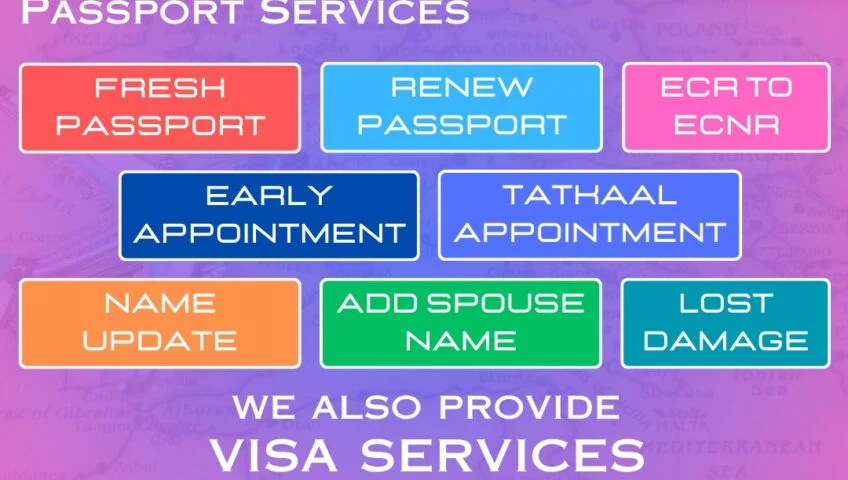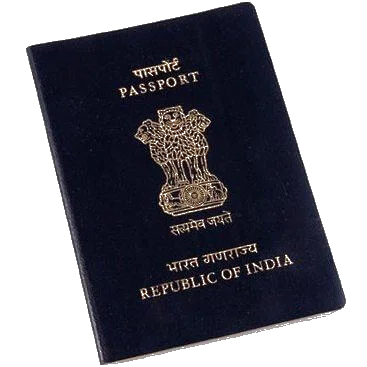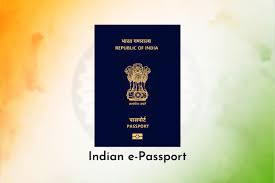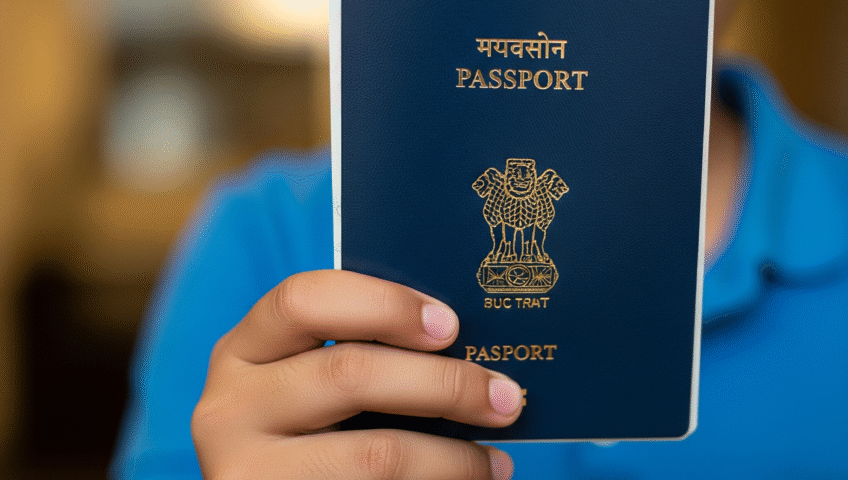A Comprehensive Guide to ECR vs. ECNR Passports 9968875644: Everything You Need to Know
Introduction
A Comprehensive Guide to ECR vs. ECNR Passports Navigating the complexities of international travel can often seem daunting, and for Indian citizens, one of the most crucial aspects to understand is the status of their passport: ECR (Emigration Check Required) or ECNR (Emigration Check Not Required). This seemingly small detail can significantly impact your travel, career, and even your peace of mind while abroad. The distinction between these two categories is not merely a formality but a system put in place by the Indian government to protect its citizens. A Comprehensive Guide to ECR vs. ECNR Passports 9968875644
This comprehensive guide will delve deep into the differences between ECR and ECNR passports, explore the merits and demerits of each, and provide a step-by-step guide on how to obtain an ECNR passport. By the end, you will have a complete understanding of why this classification matters and how to ensure your passport is right for your future plans. A Comprehensive Guide to ECR vs. ECNR Passports 9968875644

What is ECR and ECNR? The Fundamental Difference
At its core, the distinction between ECR and ECNR is based on the requirement for an “emigration check” before an individual can travel for employment to certain countries. This check is a protective measure to safeguard vulnerable Indian citizens from potential exploitation by foreign employers or recruitment agents.
- ECR (Emigration Check Required): This category is for passport holders who have not completed their matriculation (10th standard) or its equivalent. If your passport has an “Emigration Check Required” stamp or remark, it means that before you can travel for employment to any of the 18 designated ECR countries, you must first obtain an “Emigration Clearance” from the office of the Protector of Emigrants (PoE). This process ensures that your employment contract is valid and that you are aware of your rights and the terms of your work.
- ECNR (Emigration Check Not Required): This is the more common and unrestricted category of passports. If your passport does not have the ECR stamp, it is automatically considered ECNR. Holders of ECNR passports are exempt from the emigration check process, allowing for seamless travel for all purposes, including employment, to any country in the world.

The practice of stamping “ECNR” on passports was discontinued after January 2007. Therefore, if a passport issued after this date does not have the ECR endorsement, it is automatically an ECNR passport. For older passports issued before 2007, the ECR status might not be explicitly mentioned, but the absence of an ECNR stamp meant it was an ECR passport. This change was implemented to simplify the system.
The Role of the Protector of Emigrants (PoE)
The Protector of Emigrants is an authority under the Ministry of External Affairs, Government of India. Their primary function is to protect the interests of Indian workers going abroad. The PoE scrutinizes employment documents, such as contracts and visas, to ensure that the terms of employment are fair and just. This check is a crucial safeguard for ECR passport holders, especially those traveling for low-skilled or semi-skilled labor. There are multiple PoE offices across India, each with a specific jurisdiction, and they play a vital role in preventing human trafficking and worker exploitation.
Demerits and Merits of an ECR Passport
Understanding the limitations and benefits of each passport type is essential for making an informed decision.
Demerits of an ECR Passport
- Mandatory Emigration Check: This is the most significant demerit. Before an ECR passport holder can travel for employment to the designated 18 countries, they must visit a Protector of Emigrants (PoE) office to get an emigration clearance. This adds an extra, time-consuming step to the travel process.
- Potential for Delays: The emigration clearance process, while designed for protection, can sometimes lead to delays. The process requires documentation, an appointment, and verification, which can complicate last-minute travel plans.
- Restrictions on Employment: The ECR status is specifically designed for individuals seeking employment, particularly in countries with a history of labor-related issues. While it doesn’t restrict travel for tourism or education, it creates a bureaucratic hurdle for work-related travel to those countries.
- Risk of Exploitation: Although the ECR status is a protective measure, it also signifies that the passport holder is considered vulnerable. Without proper emigration clearance, a person with an ECR passport could be at a higher risk of exploitation, as the government’s formal check has not been completed.
- Perceived Status: In some cases, having an ECR passport might be perceived by foreign employers or immigration officials as a sign of lower educational or professional qualifications, even if it is not the case. This can, in some rare instances, create an unconscious bias in hiring or visa processes.

Merits of an ECR Passport
While the ECR status has several drawbacks, it’s crucial to acknowledge its protective purpose, which can be seen as a significant merit.
- Government Protection: The primary benefit is the built-in layer of government protection. The emigration check ensures that the individual’s employment contract is legitimate, the terms are not exploitative, and they have the necessary support to travel abroad for work. This acts as a crucial safety net.
- Prevention of Fraud: By mandating a formal check, the government helps prevent instances of fraud by unscrupulous recruiting agents who may promise jobs that do not exist or are under unfair conditions.
- Support for Unskilled Labor: The ECR system is particularly beneficial for individuals from rural backgrounds or those with limited formal education who might be seeking semi-skilled or unskilled work abroad. It provides them with an official, legal, and verified pathway to employment, ensuring their rights are protected.
Merits and Demerits of an ECNR Passport
The ECNR passport, often referred to as a non-ECR passport, is the preferred status for a vast majority of Indian travelers.
Merits of an ECNR Passport
- Complete Freedom of Travel: This is the most significant advantage. An ECNR passport holder can travel for any purpose—employment, tourism, business, or education—to any country without the need for an emigration check. This simplifies the entire travel process.
- Reduced Bureaucracy: Without the need for a pre-departure check, the travel process becomes significantly smoother. This saves time, money, and the hassle of gathering documents and visiting a PoE office.
- Faster Immigration Process: ECNR passport holders generally experience a smoother and faster process at immigration counters, both in India and abroad, as there are no additional checks required for employment-related travel.
- Enhanced Professional Status: Holding an ECNR passport implicitly signifies that the individual meets certain educational or professional standards set by the government. This can be seen as a positive attribute by foreign employers and institutions.
- Flexibility for Employment: ECNR status provides immense flexibility. If a person finds a new job opportunity abroad, they can take it without worrying about additional emigration clearances.
Demerits of an ECNR Passport
The ECNR passport, by design, has very few demerits. Its primary drawback, if one can call it that, is the absence of the protective layer that the ECR status provides.
- Absence of Government Check: Since there is no formal emigration check, an ECNR passport holder is solely responsible for verifying the legitimacy of their employment contract and the recruiting agent. This means they are more exposed to potential fraud and exploitation if they are not vigilant.
- No Direct Support from PoE: In case of a dispute with an employer or a problem with the work contract, an ECNR holder cannot seek a quick resolution from the PoE, as they were not part of the initial emigration process. They would need to rely on the Indian embassy or consulate in the destination country.
How to Get an ECNR Passport: A Step-by-Step Guide
The process of getting an ECNR passport is straightforward, whether you are applying for a new one or converting an existing ECR one. The key is to demonstrate that you meet the eligibility criteria.
Eligibility Criteria for an ECNR Passport
You are eligible for an ECNR passport if you fall into any of the following categories:
- Education: You have passed the matriculation (10th standard) or have a higher educational qualification. This is the most common and easiest way to qualify.
- Professional Qualifications: You hold a professional degree such as an MBBS, B.Tech, CA, or are a qualified journalist.
- Age: You are 50 years of age or older.
- Minors: All children under the age of 18 are automatically granted ECNR status. However, upon turning 18, they must apply for a new passport and provide proof of their ECNR eligibility.
- Government Employees: All government servants, their spouses, and dependent children are eligible.
- Income Tax Payers: You have paid income tax for the last three years in your individual capacity.
- Spouses: The spouse of a person holding an ECNR passport (if they meet certain criteria).
- Overseas Stay: You have been residing abroad for more than three years.
- Seamen: Seamen in possession of a Continuous Discharge Certificate (CDC).
The Application Process: Fresh Passport or Re-issue
The application for a new ECNR passport or the conversion of an existing ECR passport is done through the official Passport Seva website. The process is the same for both, as you will be applying for a “re-issue” of your passport with a change in personal particulars (specifically, the removal of the ECR status). A Comprehensive Guide to ECR vs. ECNR Passports 9968875644
Step 1: Online Application
- Go to the official Passport Seva website (https://www.passportindia.gov.in/).
- Register as a new user or log in to your existing account.
- Click on “Apply for Fresh Passport/Re-issue of Passport.” A Comprehensive Guide to ECR vs. ECNR Passports 9968875644
- Fill in the application form online. When you reach the section on “Emigration Check,” you must select “Yes” to the question, “Do you want to apply for ECNR?” This will signal your request to have the ECR status removed.
Step 2: Documentation : A Comprehensive Guide to ECR vs. ECNR Passports 9968875644
The most crucial part of the process is providing the correct documents to prove your eligibility. You must carry the originals and self-attested photocopies of all documents to your appointment.
- Proof of Identity and Address: Aadhar card, Voter ID, Driving License, or a bank passbook.
- Proof of Date of Birth: Birth certificate, school leaving certificate, or your old passport.
- Proof of ECNR Eligibility: This is the most important document. Based on your eligibility criteria, you must provide one of the following:
- Educational Proof: Class 10th or higher passing certificate/marks sheet.
- Professional Proof: Your professional degree or diploma certificate.
- Income Tax Proof: The last three years’ Income Tax Return (ITR) receipts.
- Old Passport: If you have an ECR passport and are applying for re-issue, you must bring the old passport. A Comprehensive Guide to ECR vs. ECNR Passports 9968875644
Step 3: Appointment and Verification
- After filling out the form and uploading the necessary documents, you must pay the passport fee online.
- Schedule an appointment at the nearest Passport Seva Kendra (PSK) or Post Office Passport Seva Kendra (POPSK). A Comprehensive Guide to ECR vs. ECNR Passports 9968875644
- On the day of the appointment, bring all your original documents and their photocopies. A passport officer will verify your documents and take your photograph and biometrics. A Comprehensive Guide to ECR vs. ECNR Passports 9968875644
Step 4: Passport Issuance
- Once your application and documents are verified, the process for police verification will be initiated.
- After the police verification is successfully completed, your new passport with the ECNR status will be dispatched to your registered address via speed post.
Important Note for Minors: Passports for minors (under 18) are typically issued with an ECNR status. However, once they turn 18 and apply for a new passport, they must provide proof of their educational qualifications (10th pass certificate or higher) to ensure they receive a new ECNR passport. If they cannot provide this proof, they will be issued an ECR passport. A Comprehensive Guide to ECR vs. ECNR Passports 9968875644
Conclusion
The ECR and ECNR classification on an Indian passport is a critical component of the country’s emigration policy, designed to protect its citizens. While an ECR passport provides a necessary safety net for vulnerable individuals traveling for employment, it comes with the administrative burden of an emigration check. Conversely, an ECNR passport offers the holder greater freedom, flexibility, and a smoother travel experience.
Understanding the difference and the eligibility criteria is the first step toward a hassle-free travel and career journey. For a vast majority of Indians, obtaining an ECNR passport is the ideal choice. The process is straightforward, and by providing the necessary documentation, you can secure a passport that not only allows you to travel freely but also acknowledges your professional and educational standing. As a global citizen, having the right passport status is not just a convenience; it is an empowerment that opens doors to opportunities worldwide. A Comprehensive Guide to ECR vs. ECNR Passports 9968875644

